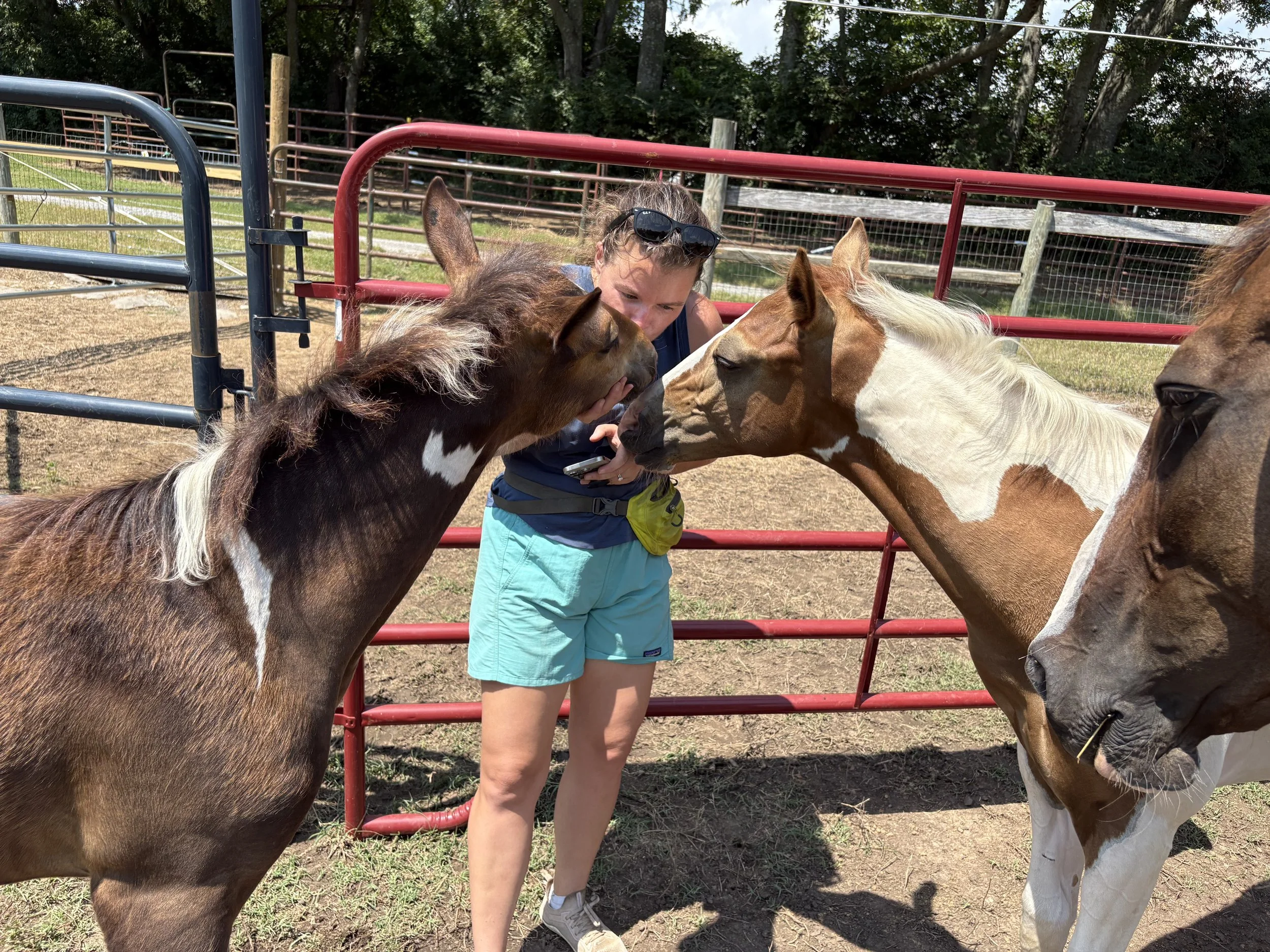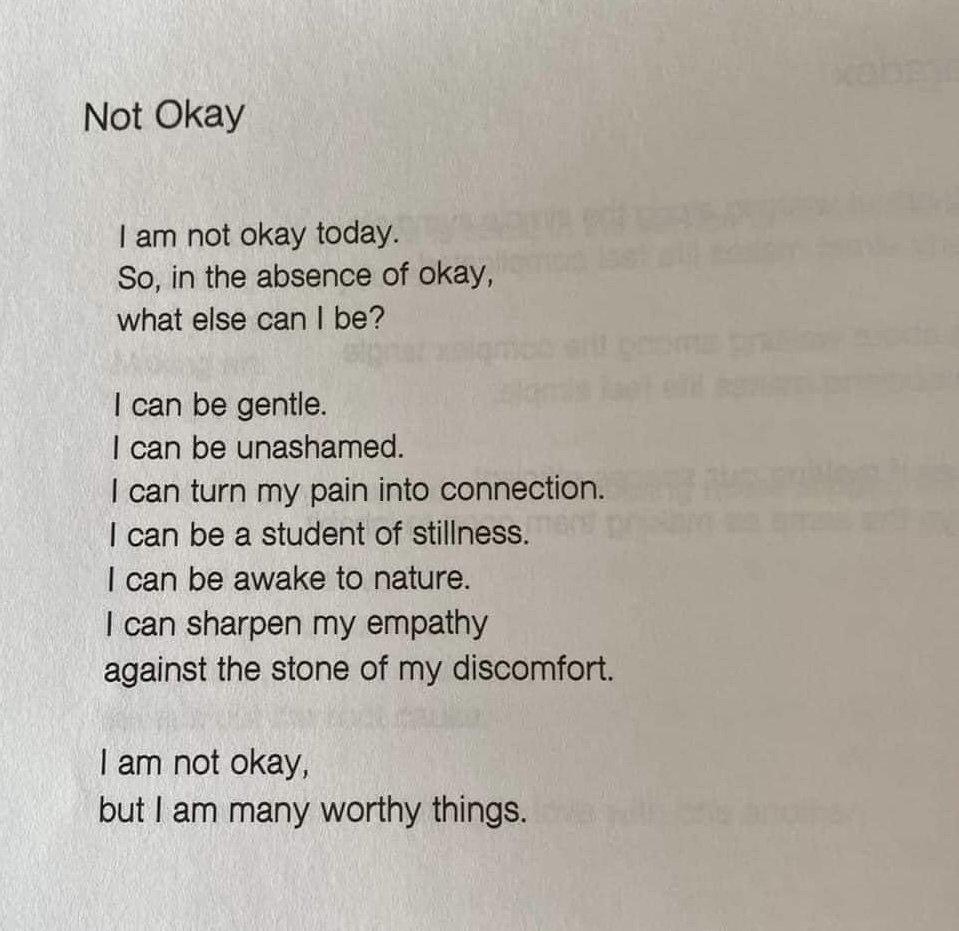On Death and New Beginnings 🐎🌿
There are days in this work that are pure joy.
The first sound of hoofbeats on grass after months of slow, careful rehab.
The soft sigh of a horse relaxing under gentle hands as tension melts away.
The moment an eye, once dulled by pain or hardship, regains that sparkle that tells you, I feel safe here.
These are the days that fill your chest with lightness and make every early morning and late night worth it.
And then there are the other days.
The days when, despite every treatment, every adjustment, every ounce of hope, and all the love in the world, the kindest choice left is to let them go.
The Weight of the Decision
Making the decision to put a horse down is one of the heaviest responsibilities we carry as caretakers.
It is never made lightly. We consult vets, weigh every possible option, and run through every “what if” our minds can invent.
But sometimes, no matter how much we wish otherwise, the truth is clear: the suffering outweighs the joy. The pain is more than their body can bear. The road ahead offers no real chance for recovery.
And when that day comes, we have to remember: love is not always holding on. Sometimes, love is knowing when to let go.
Creating a Good Goodbye
A dignified passing is the last gift we can give.
On that day, we slow everything down.
We choose a halter they are comfortable in.
We braid flowers into their mane.
We scratch every favorite spot - behind the ears, under the jaw, along the withers - until they lean into our hands.
We bring out all the cookies, carrots, apples, or fresh grass they could ever want.
And when the moment comes, we stay. We speak softly. We breathe with them. We are the familiar presence in their final moments.
We bear witness to their passing. We hold them through this final transition.
The Herd’s Grief
When a horse leaves, the absence doesn’t just echo in human hearts, it reverberates through the herd.
Horses grieve, each in their own way.
Some call out, pacing the fenceline for hours.
Some stand quietly, head low, in the place their friend once stood.
Some show subtle signs… eating less, standing apart, moving without their usual spark.
Part of honoring the one we’ve lost is caring for those who remain. That might mean:
✨ Letting them see and understand their companion’s passing, so they aren’t left wondering.
✨ Adjusting routines to give them stability and comfort.
✨ Offering extra companionship - from other horses or from us - to help fill the emptiness.
Loss ripples outward, and it takes time for the waters to settle.
The Quiet After
In the days that follow, the barn feels different. There’s an empty stall or a gap in the pasture that draws your eye every time you walk past. Your hands reach for a halter that no longer hangs there.
Grief comes in waves… sometimes soft and distant, sometimes sharp and unexpected. And in those moments, we remember that the ache is the cost of loving deeply.
But grief doesn’t erase hope.
The Space Grief Leaves Behind
In the stillness after a loss, life finds a way to return.
Not to replace what was gone, nothing can, but to remind us that our capacity to care, to love, and to connect is still intact.
The space left by one horse becomes a space to honor their memory by how we treat the next.
Every feeding, every gentle touch, every moment of patience is a thread tying the past to the present.
Honoring the Past, Caring for the Future
Each horse we lose leaves behind lessons:
Patience in the slow work.
The importance of listening for whispers before they become shouts.
That trust, once earned, is the most valuable thing we can ever hold.
These lessons become part of the way we care for every horse that follows.
We keep them alive not just in memory, but in action - in the way we fit a halter, in the way we soften our voice, in the way we adjust the work to suit the horse in front of us.
Endings and Beginnings
Loss is, without question, the hardest part of this work.
But beginnings - even quiet, small ones - remind us that while endings are inevitable, so is the possibility of new connection.
Every time we welcome a new horse, every time we place our hands on a tired body and promise care, we are honoring those who came before.
🐴 We continue to honor the past by caring for the future.
As a final note, I’d like to offer up a poem by Jarod K. Anderson that has really helped me process my own grief over the past year. Maybe it can help you, too <3


